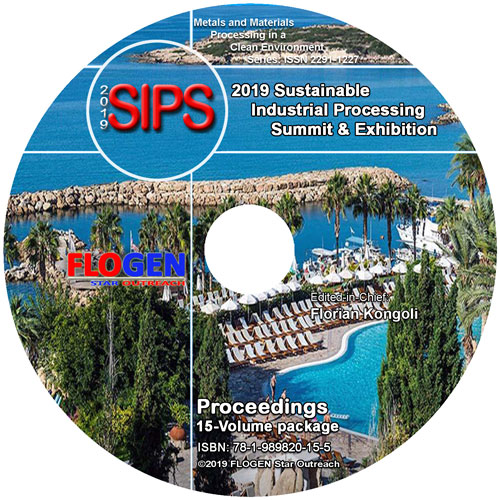2019-Sustainable Industrial Processing Summit
SIPS2019 Volume 13: Composite, Ceramic, Nanomaterials, Polymers, and Mathematics
| Editors: | F. Kongoli, M. de Campos, S. Lewis, S. Miller, S. Thomas |
| Publisher: | Flogen Star OUTREACH |
| Publication date: | 20 December 2019 |
| Pages: | 171 pages |
| ISBN: | 978-1-989820-12-4 |
| ISSN: | 2291-1227 (Metals and Materials Processing in a Clean Environment Series) |

CD shopping page
Nature's algebra
Peter Rowlands1;1UNIVERSITY OF LIVERPOOL, Liverpool, United Kingdom;
Type of Paper: Regular
Id Paper: 395
Topic: 38
Abstract:
Though a wide variety of mathematical techniques are used in physics and its applications, much of this stems from complexity rather than the underlying fundamental theories. At the most fundamental level, Nature appears to use mathematics in a strikingly minimal way, basing itself on only a few simple principles. Nature, in its most basic aspect, does not appear to require sophisticated mathematics, which seemingly arises only from the entanglement of multiple simple systems. Mathematics at the most fundamental level is almost an accidental result of a very few basic symmetries (principally, duality and anticommutativity, based on the numbers 2 and 3) and a requirement to maintain totality zero. These generate a particular double space algebra which can be seen as the basis of quantum mechanics, classical mechanics, particle physics and even aspects of chemistry and biology, in particular the genetic code.